Junkyard Find: 1985 Toyota Camry LE Liftback

I thought I’d seen the rarest member of the Camry species in North America when I spotted this 1990 Camry All-Trac on the coldest day I’ve ever experienced in a junkyard. Perhaps I was wrong. Here’s one of the very few first-gen Camry liftbacks sold in this country, now Crusher- bound.
331,120 miles on the clock, or an average of 11,825 miles per year.
The cavernous hatch makes this into something like a very large Corolla, and maybe that’s what made nearly all the Camry shoppers go for sedans.
It’s got some rust and the interior is pretty grimy, but this car is in good shape for something that has racked up twice the miles of most 80s Japanese cars you see in wrecking yards.
Toyota made the S engine until just a few years ago. While we’ve seen plenty of S engines fail dramatically in the 24 Hours of LeMons, they hold together very well on the street.
Will these cars ever have any collector value? It’s too early to tell.

Murilee Martin is the pen name of Phil Greden, a writer who has lived in Minnesota, California, Georgia and (now) Colorado. He has toiled at copywriting, technical writing, junkmail writing, fiction writing and now automotive writing. He has owned many terrible vehicles and some good ones. He spends a great deal of time in self-service junkyards. These days, he writes for publications including Autoweek, Autoblog, Hagerty, The Truth About Cars and Capital One.
More by Murilee Martin
Latest Car Reviews
Read moreLatest Product Reviews
Read moreRecent Comments
- Bd2 Ultimately, it comes down to price/whether it makes financial sense for buyers (right now, BEVs just aren't there, even with the tax credit). HEVs are finally seeing their place in the sun, decades after being a niche market; this is due to premium for HEVs having narrowed significantly with pure ICE, whereby buyers can recoup that after 2-3 years of ownership.
- MaintenanceCosts I've experienced three cars that were the first year of the model. The two I bought (first-off-the-boat 2004 TSX and midyear 2006 Civic) were both Hondas and were both flawless. The other one was my ex-stepmother's 1990 Land Rover Discovery. It was one of the very first Euro-spec models, a two-door with an asthmatic carbureted 3.5L V8 and a five-speed manual. Every part of the car broke at some point, including things like hatch hinges that really shouldn't break. It turned her off Land Rover forever, and her cars since have all been Subarus.
- MaintenanceCosts When I was living with my Bolt in a rental condo and charging from 120V in the garage, as soon as the association figured out what was happening, they asked me to pay $30 a month to cover the cost. That's pretty close to what I was using so I had no issue with it.
- SCE to AUX I've had mixed results with first-year cars:71 Pinto - good. 85 LeBron GTS - good. 96 Grand Voyager - good. 02 Passat B5.5 - bad. 05 Odyssey - bad. I also had a last-year car that was terrible (80 Bobcat), but most cars were crap then, anyway.
- Crown Go big or go home. Never understood the "economy version" that manufacturers make of a performance car.



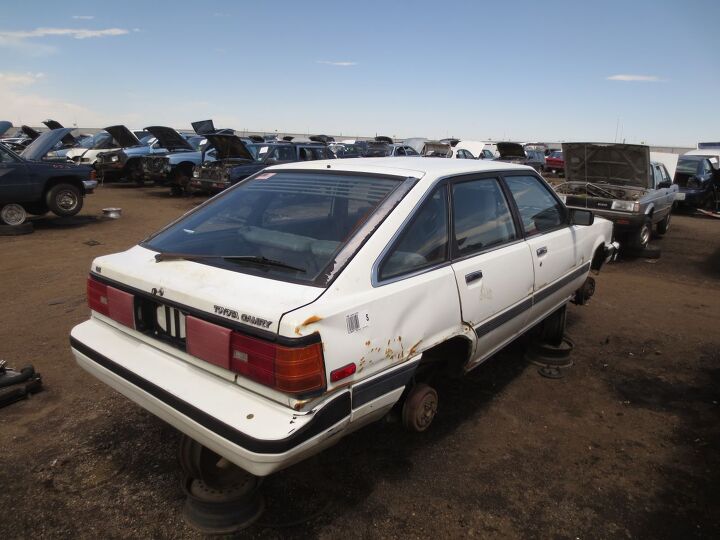



























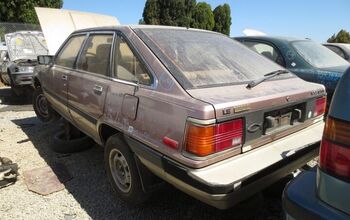
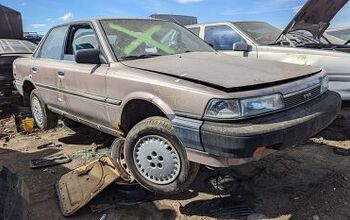
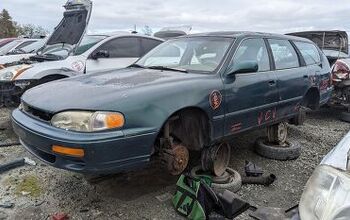
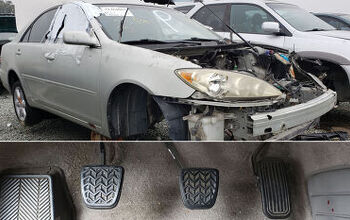
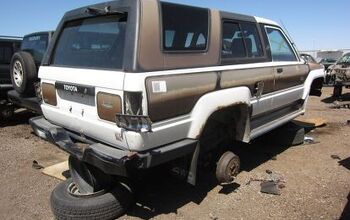


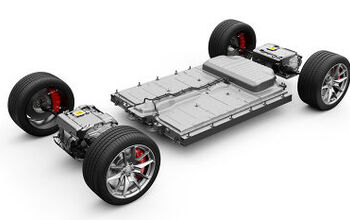










Comments
Join the conversation
Waiting for a red light in Pasadena , Ca. last night , a poop brown one rolled up next to me with Granpa driving and Grandma riding shotgun . It was as clean as you'll fine , decent original paint and chrome etc. , ran nice too . -Nate
heheh . Brown was the defining 80s car color, just like pu-eer avacado green was for the 70s